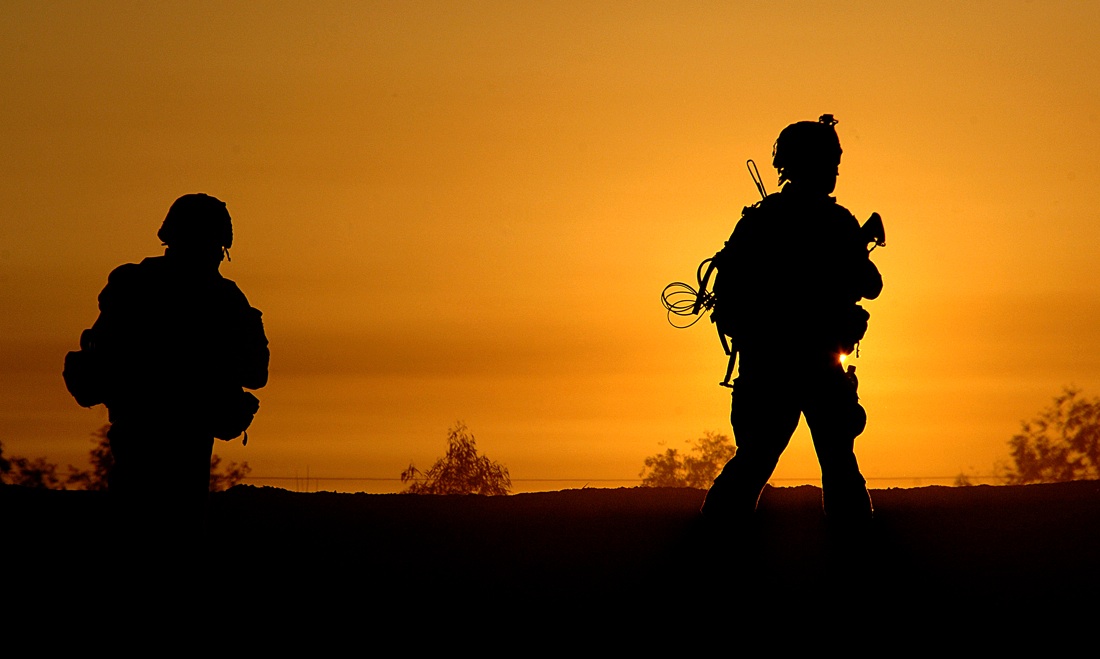Soldier's Rabies Death Points to Vaccine's Importance, CDC Says

Get the world’s most fascinating discoveries delivered straight to your inbox.
You are now subscribed
Your newsletter sign-up was successful
Want to add more newsletters?

Delivered Daily
Daily Newsletter
Sign up for the latest discoveries, groundbreaking research and fascinating breakthroughs that impact you and the wider world direct to your inbox.

Once a week
Life's Little Mysteries
Feed your curiosity with an exclusive mystery every week, solved with science and delivered direct to your inbox before it's seen anywhere else.

Once a week
How It Works
Sign up to our free science & technology newsletter for your weekly fix of fascinating articles, quick quizzes, amazing images, and more

Delivered daily
Space.com Newsletter
Breaking space news, the latest updates on rocket launches, skywatching events and more!

Once a month
Watch This Space
Sign up to our monthly entertainment newsletter to keep up with all our coverage of the latest sci-fi and space movies, tv shows, games and books.

Once a week
Night Sky This Week
Discover this week's must-see night sky events, moon phases, and stunning astrophotos. Sign up for our skywatching newsletter and explore the universe with us!
Join the club
Get full access to premium articles, exclusive features and a growing list of member rewards.
The case of a U.S. Army soldier who died in New York after likely contracting rabies from a dog bite in Afghanistan calls attention to the risk of rabies during travel or deployment to certain countries, and the importance of administering the rabies vaccine promptly to anyone who may have been exposed to the virus, according to a report of the soldier's death released today (May 3).
The 24-year-old soldier's death, which occurred in August 2011, was the first rabies death among U.S. service members since 1974, the report from the Centers for Disease Control and Prevention said.
Unless the rabies vaccine is administered after exposure, an infection with rabies virus, which targets the nervous system, is nearly always fatal.
On Aug. 19, the solider was admitted to a New York emergency room with right arm and shoulder pain, nausea and vomiting. He tested positive for rabies. Although doctors administered an experimental treatment, the soldier died on Aug. 31.
The soldier had told family and friends that he'd been bitten by a feral dog in Afghanistan in January 2011, and had sought medical treatment, which he described as wound cleansing and injections. However, an Army investigation revealed no documentation of a reported bite wound or treatment, the CDC report said.
Twenty-nine people who were in close contact with the soldier, including health-care personnel, received the vaccine.
The case also highlights the need for the global elimination of rabies in dogs, the report said. Canine rabies is responsible for the majority of rabies deaths worldwide.
Get the world’s most fascinating discoveries delivered straight to your inbox.
In the U.S., 45 cases of rabies were reported between 1996 and August 2011, and 10 of those cases were likely caused by dog bites. All 10 occurred overseas but were reported in the U.S., the report said.
People traveling should be aware of rabies risks, and should keep a safe distance from wild and feral animals, the report said. Travelers receiving bites or scratches from such animals should wash the wound thoroughly with soap and water, and promptly seek medical attention.
Human-to-human transmission of rabies has not been documented (with the exception of transmission through organ transplantation), the report said, but is theoretically possible, because the virus can present in saliva and tears, along with cerebrospinal fluid and neural tissue.
Pass it on: The death of soldier from rabies highlights the importance of receiving the rabies vaccine after a possible exposure to the virus.
Follow MyHealthNewsDaily on Twitter @MyHealth_MHND. Find us on Facebook.
 Live Science Plus
Live Science Plus











